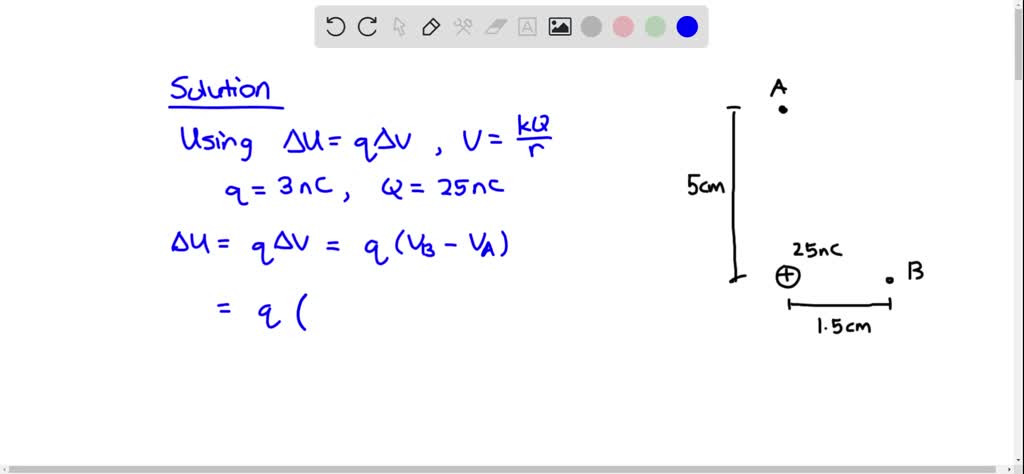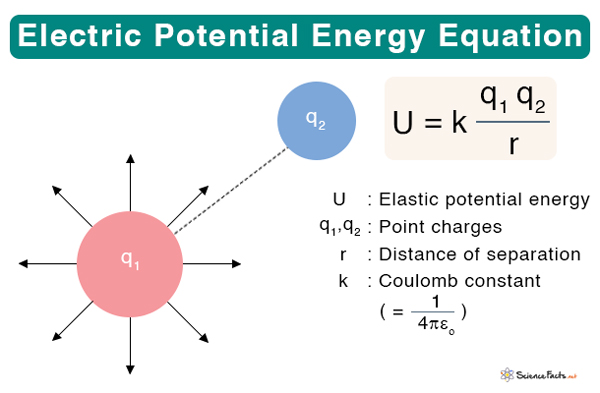
Image: www.numerade.com
In the realm of electricity, the concept of electric potential, often referred to as voltage, holds significance. Understanding the electric potential of Earth, which is taken to be zero, unravels a fascinating chapter in the study of electricity. This article delves into the why’s and wherefores behind this universal grounding convention, exploring its implications and applications
Unraveling the Zero Electric Potential of Earth
The electric potential, essentially, denotes the amount of electrical potential energy possessed by a charged particle at a particular location within an electric field. Analogous to the concept of gravitational potential in the context of gravity, electric potential, measured in volts, quantifies the potential difference or voltage between two points. Now, when it comes to Earth, the planet we inhabit, its electric potential is designated as zero. This seemingly arbitrary choice, however, serves a multitude of practical purposes that warrant exploration
Grounding for Electrical Safety
Establishing the electric potential of Earth as zero provides a stable and safe reference point for electrical systems. The grounding of electrical equipment, a cornerstone of safety protocols, hinges critically on this convention. Grounding entails connecting the non-current-carrying metal parts of an electrical system to the Earth’s surface, effectively creating a low-resistance path for any stray electrical currents.
In the event of an electrical fault or accidental contact with a live wire, grounding diverts the current away from the individual and into the Earth, minimizing the risk of electric shock or electrocution. By setting the electric potential of Earth to zero, this protective measure becomes standardized, ensuring consistent and reliable grounding practices worldwide.
Easier Voltage Measurements
Adopting a zero electric potential for Earth simplifies the measurement of voltage, a fundamental aspect of electrical testing and troubleshooting. With Earth designated as the common reference point, voltage measurements can be made relative to this fixed value, providing consistent and accurate readings.
Eliminating the need to account for varying electric potentials in different locations streamlines the measurement process, making it universally applicable. This convention facilitates the safe and effective testing of electrical systems, from household circuits to complex industrial installations.
Facilitated Electrical Circuit Analysis
The concept of zero electric potential for Earth proves particularly valuable in the analysis and design of electrical circuits. By establishing a common reference point, circuit analysis becomes more manageable and straightforward.
Electrical engineers and technicians can analyze circuit behavior and calculate voltage drops, current flows, and power dissipation with greater ease and accuracy. This simplified approach promotes efficient circuit design and enhances the overall reliability and performance of electrical systems.
Implications for Electrostatic Phenomena
The zero electric potential of Earth extends its influence to the realm of electrostatics, the study of electric charges at rest. In this domain, the electric potential of an object is determined by its charge and its distance from the Earth’s surface.
Since Earth is considered to be at zero potential, the electric potential of an object increases with its altitude. Atmospheric phenomena like lightning and the behavior of charged particles in the ionosphere are directly influenced by the varying electric potential gradient between Earth’s surface and the upper atmosphere.

Image: www.sciencefacts.net
Electric Potential Of Earth Is Taken To Be Zero Because
Conclusion
The assignment of zero electric potential to Earth, a seemingly arbitrary choice, unveils a world of practical implications and theoretical insights in the field of electricity. From ensuring electrical safety and simplifying voltage measurements to aiding circuit analysis and enhancing our understanding of electrostatics, this convention plays a pivotal role in shaping the way we interact with and comprehend electrical phenomena. As we delve deeper into the intricacies of electricity, the significance of Earth’s zero electric potential continues to resonate, affirming its indispensable role in our technological advancements and pursuit of scientific knowledge.
